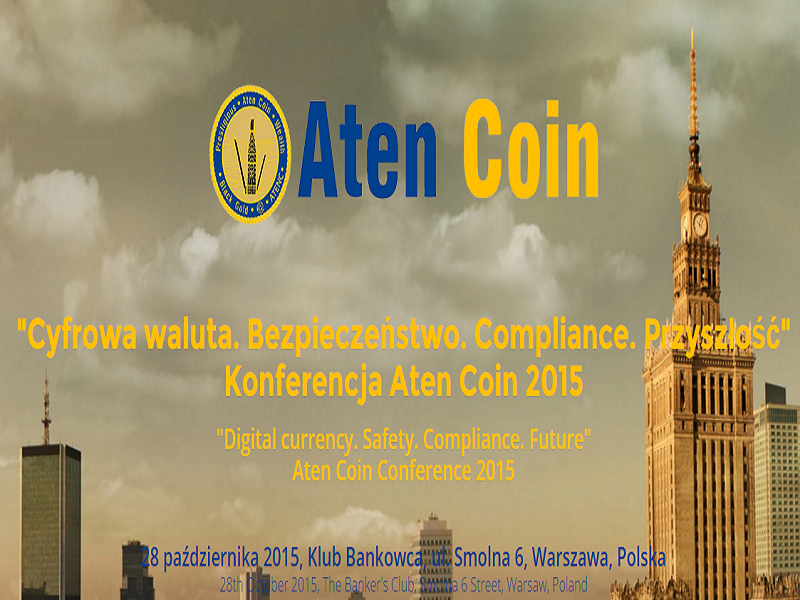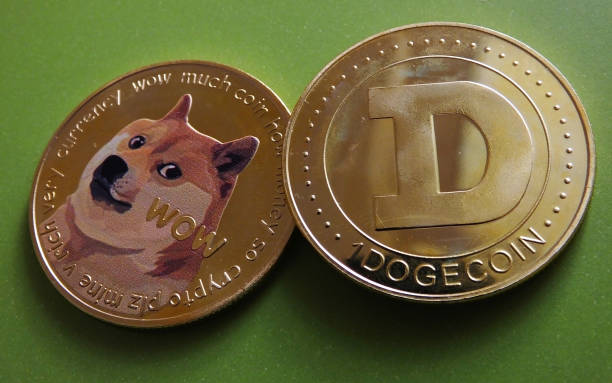Aten Coin is a cryptocurrency quickly becoming the go-to Altcoin for people interested in enjoying benefits that cryptocurrency can bring to the financial industry, while maintaining the highest levels of government compliance. Aten Coin will be introducing a new blockchain, known as the “privately regulated public blockchain,” as well as hosting a conference to talk about the future of the coin. I spoke to Marcus Andrade from Aten Coin regarding the new blockchain, the conference, and government compliance.
Also read: Bitcoin Price Rallying Towards $300
 Can you briefly describe the goal/purpose of Atencoin?
Can you briefly describe the goal/purpose of Atencoin?
In 2012, a group of programmers and entrepreneurs led by Marcus Andrade started working on the Aten Coin project and in early 2014 when development was nearly finished, Mr. Andrade formed the National Aten Coin Foundation (NAC) which has a cryptocurrency named Aten Black Gold Coin (also called Aten Coin).It is based on the Bitcoin protocol, but with additional features to achieve anti-money laundering, anti-terrorism and theft-resistance. The purpose was to create a coin that was government friendly.
Can you explain why Atencoin decided to go with a private blockchain?
Indeed, we are going with a “privately regulated public blockchain”, not “private blockchain:”.
The blockchain of Bitcoin is considered to be a “Public Blockchain”. Anyone in the world can read, modify and verify it. No one can own and control the blockchain. Anyone can freely create bitcoin addresses and freely use their addresses to receive and send bitcoins. Recently there has been a lot of discussion about how to modify and make use of the Bitcoin’s blockchain technology. We believe in the concept of decentralized banking and public blockchain, which provide 100% transparency of transactions and allow decentralization of transaction verification and block generation (i.e., mining). However, a 100% public blockchain technology, which has no central governance, has generated a lot of problems, especially the use of Bitcoin in criminal activities, terrorist financing and it is susceptible to theft.
Besides “Public Blockchain”, the concepts of “Private Blockchain” and “Consortium Blockchain” have appeared. In such concepts, the blockchains will be solely controlled by either a private entity or a group of private entities. However, such concepts are completely contrary to the concept of decentralized banking
We believe that a hybrid distributed ledger technology provides a better approach for regulating a cryptocurrency while maintaining the beauty of Bitcoin, i.e. decentralized banking. For example, The Bank of England has said that central banks are looking for ways to implement “hybrid systems” involving distributed ledger technology which is similar to the technology currently used to record bitcoin transactions. In 2013 we decided to develop a new cryptocurrency which would function in a similar way as Bitcoin, but would be regulated by a private central governance body and would comply with regulations concerning anti-money laundering and terrorist financing as well as other government regulations. On the basis of the “privately regulated public blockchain” concept, we have invented a novel personal identity-linked credential authentication protocol, and built into the source code of Aten Coin.

How will Atencoin’s new identity protocol courtesy of NAC help Atencoin?
There are two major ways. One is on the intrinsic value of Aten Coin, and one is on the acceptance and business side of Aten Coin.
Intrinsic value:
- KYC/AML compliance
- Anti-terrorist financing
- Theft-resistance – ownership of atencoins is better protected
- Clients gaining more Control over Aten Coin Banking – Using the new identity protocol, we are developing more functions that allow Aten Coin holders to set their own transaction criteria, such as restricting the maximum amount of atencoins being transferred within a certain period, restricting geographic locations where transactions can be created.
Acceptance and Business side of Aten Coin:
- Acceptance by Governments and Banks: Currently significant amount of governments and banks refuse to accept Bitcoin as an exchange media because of the anonymous nature of Bitcoin. Governments and banks should be willing to accept Aten Coin of its unique KYC/AML compliant protocol.
- Preventing Terrorist Financing: Using our new identity protocol, we are developing new functions to proactively prevent terrorist financing. NAC can restrict creation of Aten Coin transaction only in authorized countries. In such way, NAC can proactively avoid Aten Coin being used in regions prohibited by United States of America or United Nations Sanctions by monitoring the locations of senders. This should help minimizing the chance of Aten Coin being used in financing terrorist activities.
- Using client transaction data in marketing and advertising business: Our identity protocol allows us to decipher relationships among various purchasing behaviors through in-depth analysis of the transaction records stored in the Aten Coin blockchain and the identities of the Aten Coin users in our Client Identity database. For example, by analyzing all transaction records associated with a particular coffee shop in the capacity of a receiver, we can identify those clients who regularly buy coffee from this shop. By analyzing transaction records of these clients in the capacity of a sender, we can unveil their expenditure patterns. We may then find out that most of them have a common interest in purchasing red wine of a particular brand. This allows us to establish a positive association between a specific coffee consumption pattern and a specific red wine consumption pattern. Such type of information is invaluable in the marketing business. Furthermore, in each Aten Coin transaction, sender’s and receiver’s IP addresses are readily available and recorded. Such location information can allow us to identify consumable items that are particularly popular in certain regions or nations. From the Aten Coin transaction data, we could even identify the trend of changes in the consumer behavior. Such concept of using client transaction data in marketing and advertising business has been well recognized by credit card service companies, such as VISA Inc. and Master Card Inc. However, Aten Coin can reach many more regions and nations where VISA and/or Master Card services are not available. Once Aten Coin becomes a popular medium for payment, information concerning the purchasing behavior patterns that could be extracted from the Aten Coin transactions will be enormous
What is the goal of the upcoming conference and what are the topics that will be discussed there?
The goal of the Aten Coin Conference is to promote Safety & Compliance of Digital Currencies. For more information, please visit AtenCoinConference.com
Thanks for your time, Marcus. It’ll be interesting to see what milestones Aten Coin achieves next.
Do you agree with the ideology of Aten Coin? Is embracing government compliance the key to further cryptocurrency adoption? Let us know in the comments below!
Images courtesy of Aten Coin.











